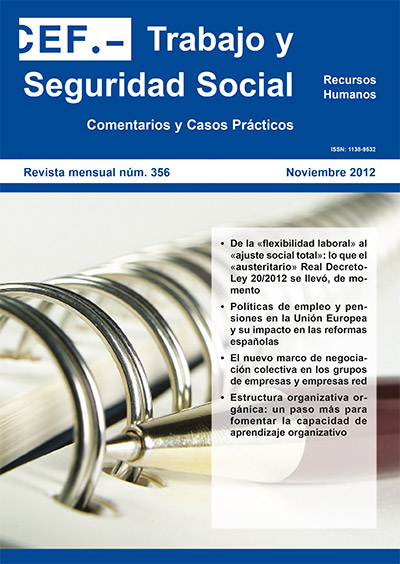The new framework for collective bargaining in the groups network enterprises and companies
DOI:
https://doi.org/10.51302/rtss.2012.3463Keywords:
collective bargaining, groups of companies, network companies, bargaining parties, standing rulesAbstract
The enterprise group, as an economic and legal fact, is one of the main results of globalization, despite its inadequate regulation in the Spanish legislation. Nowadays, enterprises groups and network companies constitute an important collective bargaining, while the total number of employees covered by collective agreements increases progressively. For this reason, the consolidation of new entreprenurial forms such as enterprises groups and network companies requires an urgent normative regulation that provides legal certainty to all the raising questions. Regarding this, Royal Decree-Law 7/2011 of 10th June, for urgent actions on collective bargaining results, has focused on the content of Title III of the Statute of Workers' Rigths. It regulates a statutory collective bargaining level with its own rules agreements in the 87.1th article, 3rd paragraph, the one that groups a set of companies or a plurality of companies linked by organizational or productive reasons, and nominately identified in its scope. From this point of view, it is really interesting to analize the «negotiation practises» in this non typical level of agreements before the Royal Decree-Law 7/2011. It is also relevant to analize the different legal precedents and doctrines that support both, the possibility of reading collective agreements erga omnes, and the result from this reform application. In this sense, although the new normative should be qualified as positive, following mainly, but not totally, the jurisprudential theory of mixed legitimation, some anomalies have been detected. This anomalies may generate now troubles, addressing that the new normative is not flexible enough to attend a so complex business world as the one that is studied in this article. Consequently, we proposed differents alternatives based on the distinction of groups of companies with vertical structures and groups of companies with horizontal structures.



















